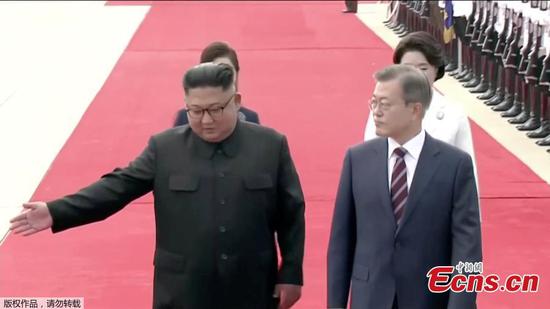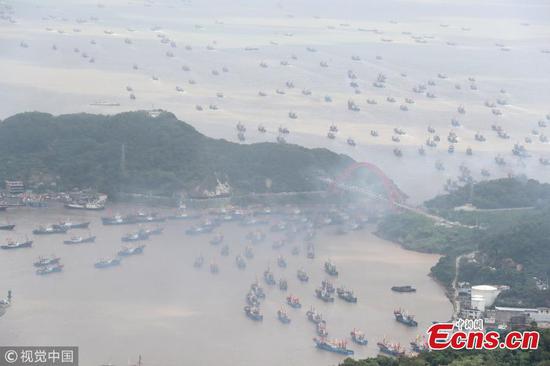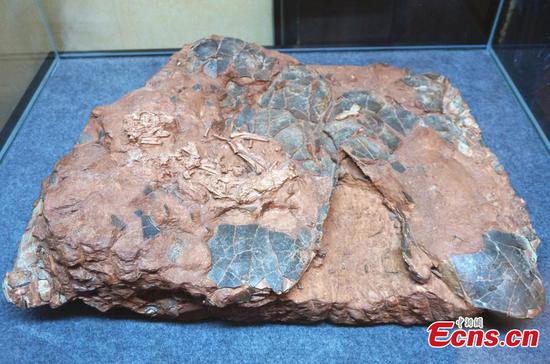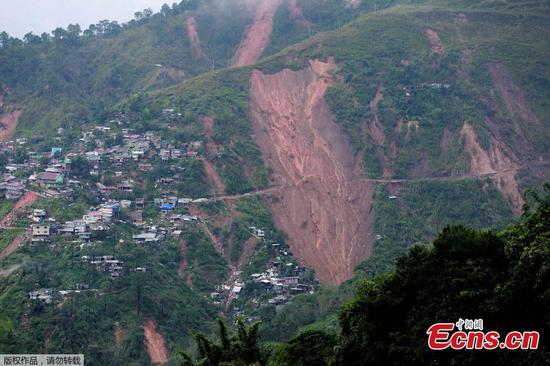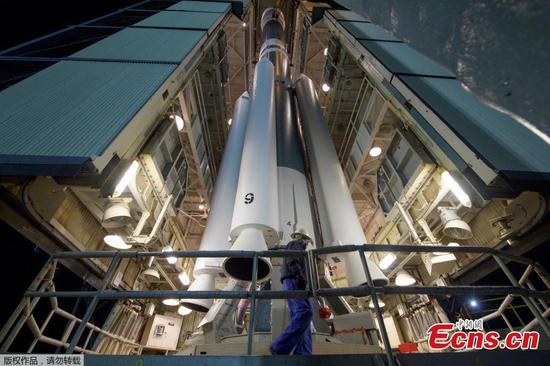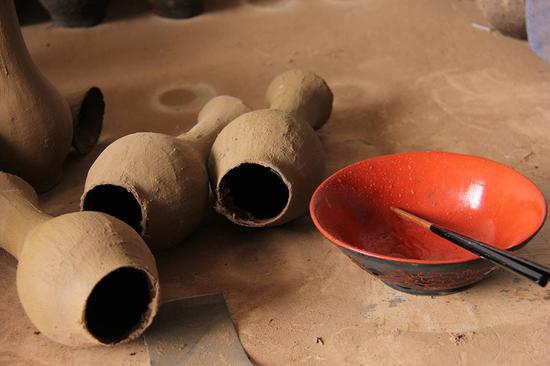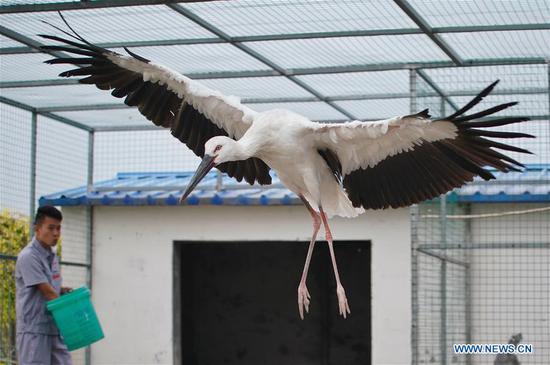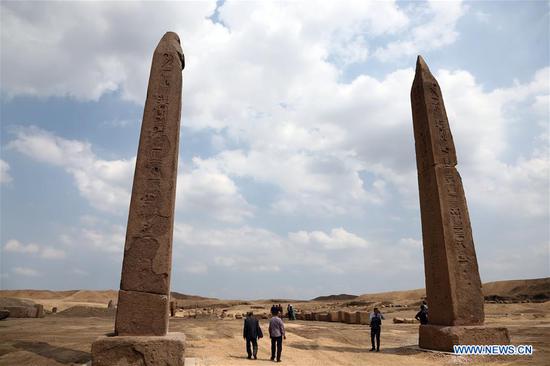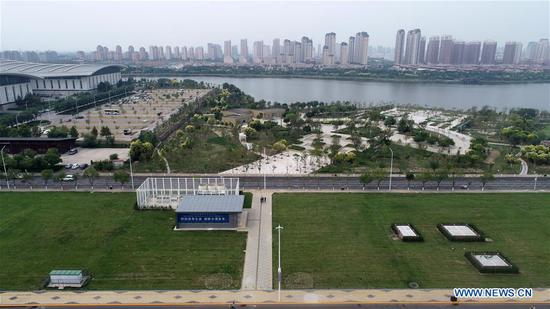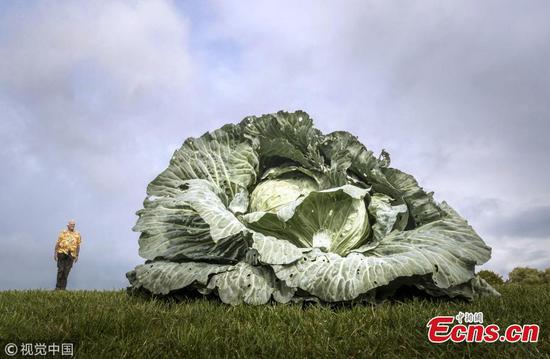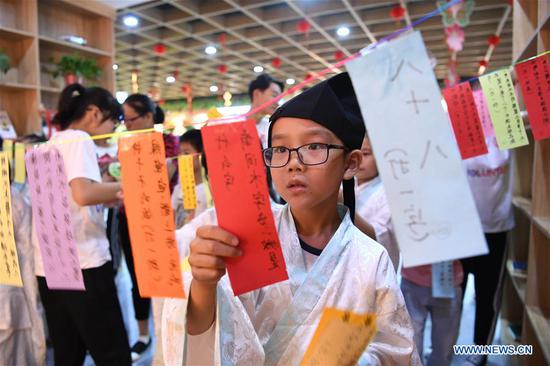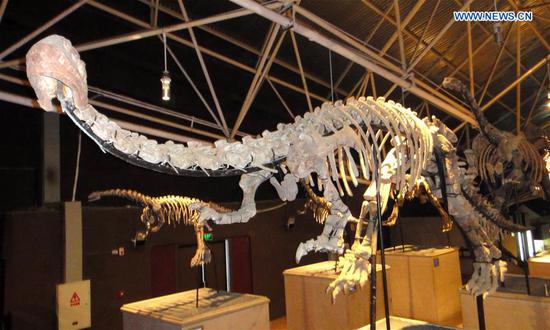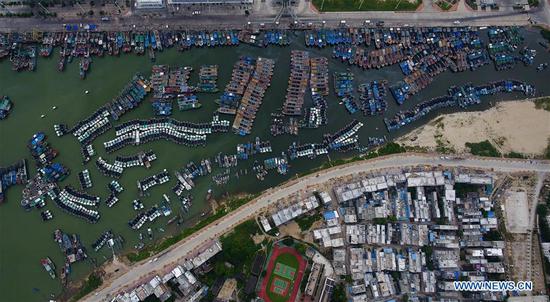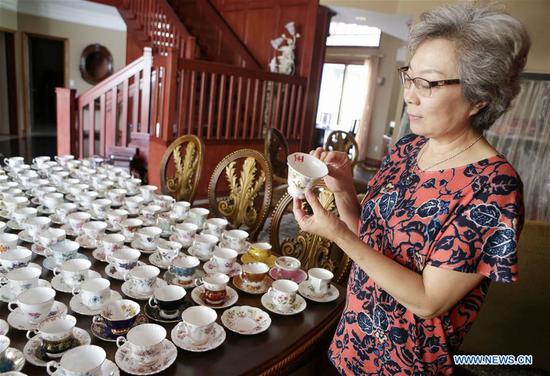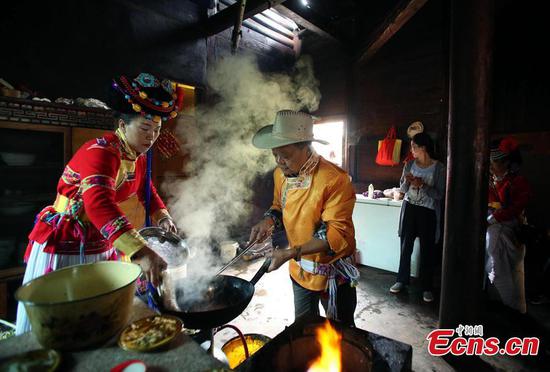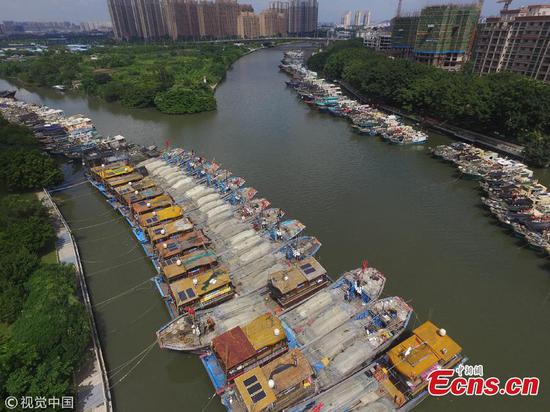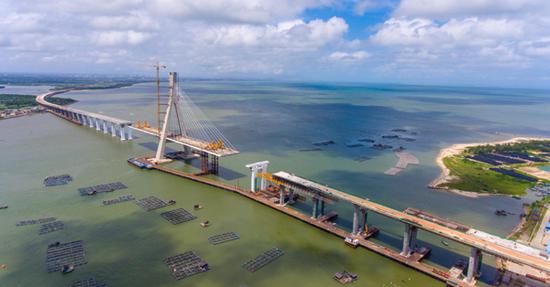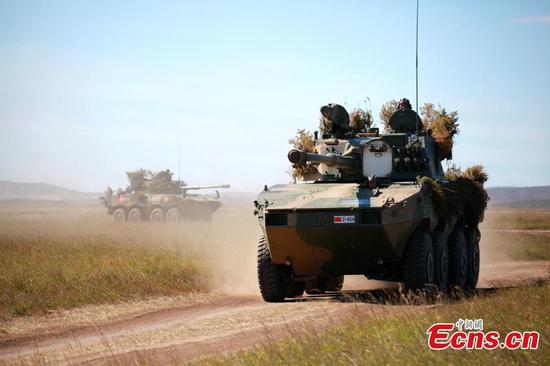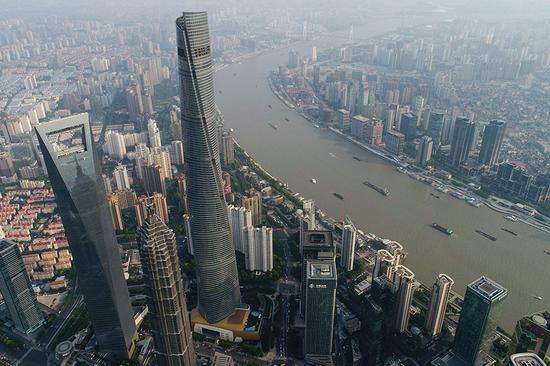
A bird's-eye view of the Lujiazui financial center in Shanghai Pudong New Area. (Photo/Xinhua)
Shanghai Pudong New Area has become major growth engine
The Shanghai Pudong New Area has developed from farmland into a modern urban district in the past 28 years.
With one-fifth of Shanghai's land and one-fourth of its population, Pudong is now the city's growth engine, contributing one-third of its GDP.
An old song in Pudong goes: "There was a mud road along the Huangpu River, which flowed through the mud town. People passing there would get mud on their clothes."
The former mud road has now become Yincheng Zhonglu, which literally means "the middle road of silver city" - the heart of the Lujiazui finance and trade zone.
"There are 250 high-end office buildings spread over the Lujiazui finance and trade zone, covering a total area of 15 million square meters and accommodating 500,000 white-collar workers," He Jianmu, an official from the Shanghai Lujiazui financial development bureau, was quoted as saying by Jiemian.com.
In the past 28 years, Pudong's GDP has snowballed from 6 billion yuan ($874 million) in 1990 to 965.1 billion yuan in 2017, with its weighting in Shanghai's GDP up from about one-twelfth to one-third, said Weng Zuliang, Party secretary of Pudong.
Pudong's government revenue grew from 1.1 billion yuan in 1993 to 393.8 billion yuan last year, and the per capita disposable income of urban and rural residents rose to 60,715 yuan in 2017, higher than Shanghai's average of 58,988 yuan, Weng added.
Tony Tovar, a coordinator at the Concordia International School Shanghai in Pudong's Jinqiao area, has witnessed the changes during his more than 16 years of living in the area.
"When I first moved to this community, it was mostly open fields and the Carrefour only opened six months ago. None of the housing in this neighborhood existed, including the house we are living in now," he said.
"In the evening, the farmers would catch frogs in the marshes on our campus. It was just all water and fields," he recalled.
Over the past 28 years, Pudong has shown its great development potential and set many records, including the Chinese mainland's first finance and trade zone, the first export processing zone, the first bonded area, the first foreign-funded bank and the first foreign-invested insurance company.
In 2013, Pudong became the birthplace of the Chinese mainland's first free trade zone. The China (Shanghai) Pilot Free Trade Zone has underpinned Pudong's high quality development, contributing to three-quarters of the area's GDP and 70 percent of its exports and imports.
"It's exciting to be here seeing the energy of the city, so many buildings constructed and so much development," said Tovar, who came from Newark, Wisconsin in the United States, and married a local woman in 2011.
"I loved Shanghai before I met my wife, and now I love Shanghai even more," said Tovar.
"Shanghai reminds me of New York," said Maria Szymanek, a housewife whose family moved to the city a few weeks ago. Before moving to China, they had lived in New York, San Francisco and Chicago.










